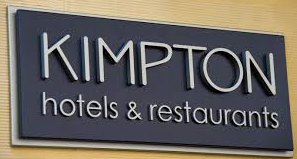Kimpton Hotels Probes Card Breach Claims
BlackBerry unveils second, cheaper, Android device
July 26, 2016Amazon launches Prime loyalty program in India
July 26, 2016Kimpton Hotels, a boutique hotel brand that includes 62 properties across the United States, said today it is investigating reports of a credit card breach at multiple locations.
 On July 22, KrebsOnSecurity reached out to San Francisco-based Kimpton after hearing from three different sources in the financial industry about a pattern of card fraud that suggested a card breach at close to two-dozen Kimpton hotels across the country.
On July 22, KrebsOnSecurity reached out to San Francisco-based Kimpton after hearing from three different sources in the financial industry about a pattern of card fraud that suggested a card breach at close to two-dozen Kimpton hotels across the country.
Today, Kimpton responded by issuing and posting the following statement:
“Kimpton Hotels & Restaurants takes the protection of payment card data very seriously. Kimpton was recently made aware of a report of unauthorized charges occurring on cards that were previously used legitimately at Kimpton properties. As soon as we learned of this, we immediately launched an investigation and engaged a leading security firm to provide us with support.”
“We are committed to swiftly resolving this matter. In the meantime, and in line with best practice, we recommend that individuals closely monitor their payment card account statements. If there are unauthorized charges, individuals should immediately notify their bank. Payment card network rules generally state that cardholders are not responsible for such charges.”
Assuming a breach at Kimpton is confirmed, the company would join a long list of hotel brands that have acknowledged card breaches over the last year after prompting by KrebsOnSecurity, including Trump Hotels (twice), Hilton, Mandarin Oriental, and White Lodging (twice). Breaches also have hit hospitality chains Starwood Hotels and Hyatt.
In many of those incidents, thieves had planted malicious software on the point-of-sale devices at restaurants and bars inside of the hotel chains. However, the source and extent of the apparent breach at Kimpton properties is still unknown.
Point-of-sale based malware has driven most of the credit card breaches over the past two years, including intrusions at Target and Home Depot, as well as breaches at a slew of point-of-sale vendors. The malware usually is installed via hacked remote administration tools. Once the attackers have their malware loaded onto the point-of-sale devices, they can remotely capture data from each card swiped at that cash register.
Thieves can then sell the data to crooks who specialize in encoding the stolen data onto any card with a magnetic stripe, and using the cards to buy gift cards and high-priced goods from big-box stores like Target and Best Buy.
Readers should remember that they’re not liable for fraudulent charges on their credit or debit cards, but they still have to report the unauthorized transactions. There is no substitute for keeping a close eye on your card statements. Also, consider using credit cards instead of debit cards; having your checking account emptied of cash while your bank sorts out the situation can be a hassle and lead to secondary problems (bounced checks, for instance).
